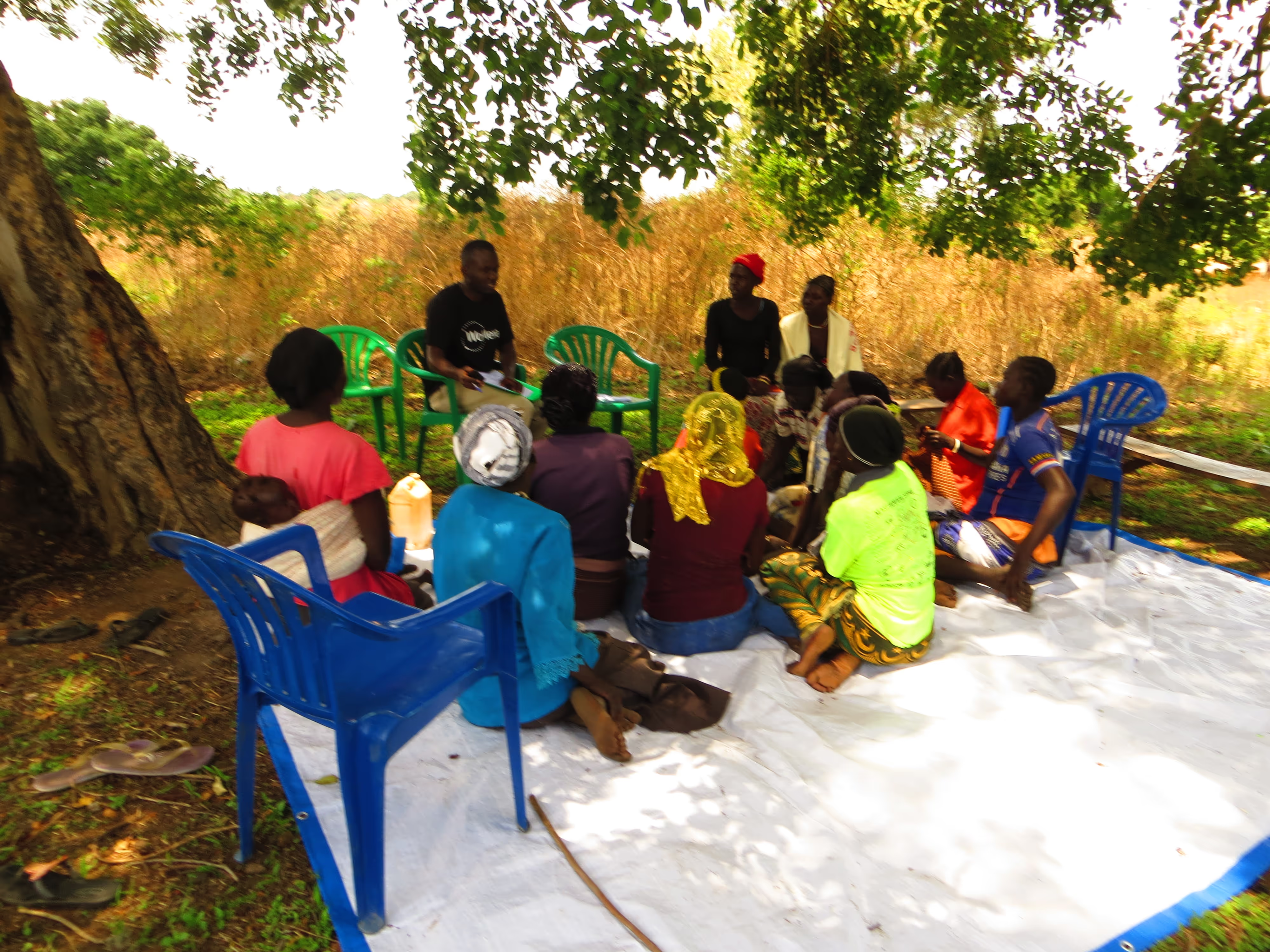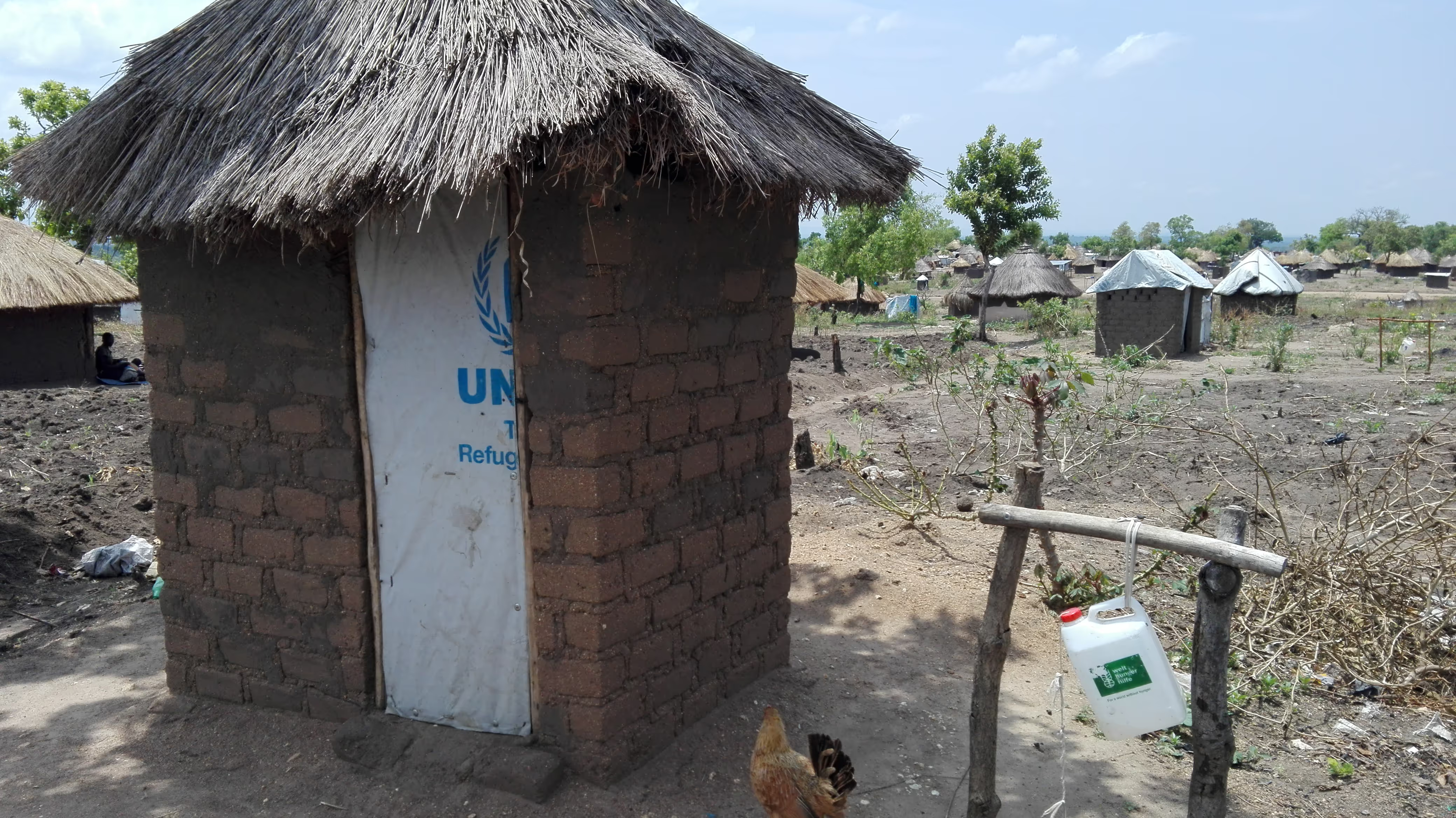Challenges and Opportunities of Menstrual Health in Ugandan Refugee Settlements

“When we were brought here as refugees, it was really difficult because we as women started life from scratch…. it was really a challenge, many women are getting infections because of poor hygiene, using rags, dirty clothes, no proper bathing”
Christine Wani, a journalist and refugee woman from South Sudan eloquently expresses the challenges women face in Bidibidi refugee settlement in West Nile, Northern Uganda, when managing their menstruation; challenges so great that she has taken it upon herself to source and provide reusable pads for women in the settlement.
“I have done something about menstrual hygiene. We received some kits including reusable pads from a friend, a well-wisher. But this came as a result of something that I conducted, I am a journalist and as I was doing my on-ground assessment and interviewing, I realised that there were many women who were suffering silently as a result of menstrual hygiene”
Christine highlights the importance of ensuring that women are provided with the means to manage their menstruation safely and with dignity. It shows the significance of taking action on menstrual health management (MHM) in a refugee context not just here in Uganda, but globally.
This example is taken from our recent visit to Bidibidi Refugee Settlement in Northern Uganda where we undertook exploratory interviews, focus group discussions and facility assessments with community members and stakeholders with the help of our partner organisation Welthungerhilfe (WHH). The aim was to get an initial understanding of the situation in Bidibidi relating to MHM to guide the development of our upcoming project. Talking to women and stakeholders in the community we were able to identify a number of challenges women face in managing their menstruation.
Women in Bidibidi lack adequate materials with which to manage their menstruation. Many women use old cloths that are then washed and reused, however, with a lack of soap available in the settlement, the risk of using unclean materials that could increase infection is high. In some cases, women have no choice but to use material such as cotton wool or bleed freely.

Privacy is also a major issue, toilets and bathing areas are rarely gender segregated and as many do not lock, private spaces to change menstrual products are hard to come by. Additionally, a lack of external and internal artificial lighting makes changing menstrual products at night particularly challenging. Education on menstrual health is also lacking in the settlement and as a result, many women do not have the knowledge or the facilities to manage their menstruation. The need for new and innovative approaches to MHM was apparent and women expressed an openness to using new reusable menstrual management methods.
Bidibidi is now one of the largest refugee settlements in the world and the scale of this crisis brings additional challenges to menstrual health management. With a total refugee population of 287,801, the government and humanitarian actors are working around the clock to make sure that all refugees have their basic needs met (food, water, shelter). Often in the early stages of a humanitarian crisis less urgent needs such as menstrual health, are not seen as a priority. However, in Bidibidi we are seeing a shift of focus to long term solutions, and as a result, providing adequate MHM solutions is becoming increasingly important within this setting.
Our next steps will be training local women and men from community health clubs, livelihoods groups and hygiene promoters in menstrual health, to provide menstrual health information and support to women within the communities. We will pilot the provision of a menstrual kit, containing either a menstrual cup and/or reusable pads along with other supporting materials, to 2000 women throughout the project (from among both the refugee and host populations where WHH works).
By Megan Devonald, Project Officer.

Top image: Focus Group discussion led by one of WoMena’s trainers at the community health clubs in the refugee host villages . (Photo credit: WoMena Uganda)
Stay updated
Sign up for our newsletter to receive regular updates on resources, news, and insights like this. Don’t miss out on important information that can help you stay informed and engaged.
Explore Elrha
Learn more about our mission, the organisations we support, and the resources we provide to drive research and innovation in humanitarian response.


.png)